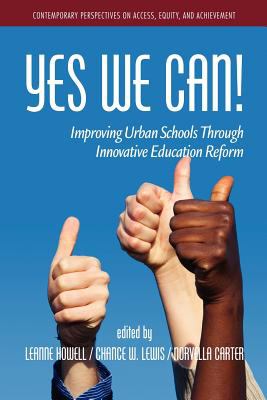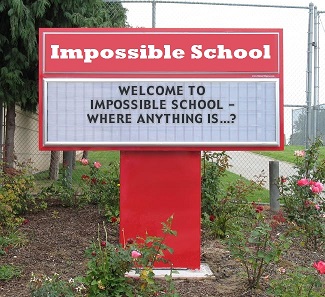 A few years ago, in a fit of enviro-economic greenness, Wal-Mart started this thing where they didn’t turn on the lights or keep their stores tolerably warm or cool.
A few years ago, in a fit of enviro-economic greenness, Wal-Mart started this thing where they didn’t turn on the lights or keep their stores tolerably warm or cool.
Presumably this saved tens of thousands of dollars per location, but that wasn’t the stated motivation for the change. Rather, they were doing it for… ‘the environment’. Not the store environment, it seems, but the larger concept of Mother Earth and her sweaty, dark embrace.
Needless to say, this approach was tempting for any number of organizations, including the public education institution in which I daily shared wisdom and inspired greatness at that time. We arrived one day to discover that the urinals in the faculty restrooms had been altered.
For those of you cursed by the cruel combination of biology and social mores which makes it unlikely you’ve enjoyed observing at a urinal firsthand, they look something like this:

Although rarely accompanied by printed instructions, common usage patterns suggest four basic steps: approach, prepare, urinate, flush. Handwashing is ideal afterwards, but that’s a different station.
Now, though, the handle used to flush them had been removed. A very nice, commercial-quality sticker was affixed to the wall between them:
“This Urinal Does Not Require Flushing.”
Tulsa is not the most glorious of consumer meccas, but we do have a few pretty nice retail establishments and a number of malls run by ginormous international conglomerates. Only a few miles from this public education institution is one of the flashiest malls in a several-state area, and they had – a few short years before – remodeled their public restrooms and installed fancy new environmentally cozy urinals.
 I’ll spare you the intimate details, but suffice it to say we all knew damn well what a flushless urinal looked like, and this was not it. Them fancy mall pee-ers were devoid of water, nicely decorated and scented, and had little plastic things that did I-don’t-know-what, but left you feeling modern and fresh and I’ll tell you what.
I’ll spare you the intimate details, but suffice it to say we all knew damn well what a flushless urinal looked like, and this was not it. Them fancy mall pee-ers were devoid of water, nicely decorated and scented, and had little plastic things that did I-don’t-know-what, but left you feeling modern and fresh and I’ll tell you what.
This was the same old urinal, and the same old water, but with the flushing handle removed.
Were further confirmation needed (it wasn’t), it wasn’t unusual for those in the building after hours for various reasons to be in the restroom when the custodian came in to clean. He usually started by pulling out some pliers and using them to flush the urinals we were unable to because of the missing handles.
“This Urinal Does Not Require Flushing.”
It so very much DID, though. It totally did. We just couldn’t. And that’s a very different thing.

It was a large building, and this particular faculty restroom was located such that it was well-used throughout the day. Fall days. Winter days. Spring Days. Cold days. Warm days.
People come in early; people stay late. Male people. Urinating people. Lots and lots of urinating people.
Plastic buckets would at least have allowed for greater volume, and been further away during these most essential interactions. As it was, by mid-afternoon even walking into the restroom was… distressing.
“This Urinal Does Not Require Flushing.”
It took a long, sustained stream (see what I did there?) of complaints and explanations and – I’m almost ashamed to say – photographic supplements, but eventually they had the handles put back on. I’m thankful we won that particular fight, but it’s time and energy and advocating capital I’d rather have spent on something more substantive.
It also made me a Bambi-hating anti-environmentalist afraid of change and accountability or something, but no one came right out and put it that way. The annoyance from my betters was palpable, however.
Years later, I can’t help but be reminded of the experience every time I see rhetoric slathered on top of the same old systems. It’s usually accompanied by just enough tinkering to lend credence to whatever trendy claims are being put forth, while in reality further handicapping those trying to take care of critical business.
“These may LOOK like multiple choice tests, but they’re carefully designed to measure CRITICAL THINKING!” (That’s not a thing. Multiple guess is multiple guess.)
“We’re moving towards inquiry-driven, standards-based learning!” (OUR Inquiry and OUR standards, of course.)

“Our priority is treating every child as an individual with unique strengths and interests!” (As we cram them through the dehumanizing factory model of faux enlightenment curriculum?)
“I believe my job is to SUPPORT our Teachers, and be an Instructional Leader!” (iPad w/ evaluation rubric alert!)
“This NEXT set of state standards will be the highest expectations for all children ever anywhere in the universal highness of standardized critical thinkingly career readiness global market!” (Need I even?)
“This Urinal Does Not Require Flushing.”
The sentiment may be sincere. Sometimes we just need to cut utility costs, or get off a state naughty list, or qualify for someone’s grant money. Too often, however, selling the rhetoric requires taking steps to make things worse in order to pretend we’re making them better (see ‘Common Core’, ‘No Child Left Behind’, or pretty much anything done by President Snow for the 12 Districts).
Perhaps a better place to start would be to ask those doing the urinating or the educating (I was tempted to ponder that particular analogy further, but opted to go ‘high road’ instead) what they think might be the most helpful. Be honest about goals and motivations of other interested players. Work it out like grown-ups, crazy as that may sound.
The powers-that-be can keep taking off the allegorical handles and posting their little stickers explaining what a wonderful improvement this is, but that doesn’t make it so. We may not be able to prevent such policies, but we’re not going toilet it go unchallenged.
It’s hard to stop the flow of information once it’s started. We’ll keep leaking our golden insights to anyone who will listen. I may sound like a bladdering idiot (that one was a stretch), but I’m here to inform those in power:
“Urinal-ot of trouble if you don’t listen. Stall if you wish, but you won’t wipe us out. Because we’re teachers. And we’re pissed.”
Flushing is most definitely required.

RELATED POST: Unintended Consequences
RELATED POST: Condemnation Bias
RELATED POST: The Elevator Is Broken



 I’m wrong quite regularly.
I’m wrong quite regularly. Perhaps this is my failure to communicate clearly. I can be a bit scattered and make all the wrong assumptions and it’s just… yikes.
Perhaps this is my failure to communicate clearly. I can be a bit scattered and make all the wrong assumptions and it’s just… yikes. Standards which those making the rules couldn’t pass even with preparation.
Standards which those making the rules couldn’t pass even with preparation.  If you question the validity or long-term value of this test, the North Koreans have pretty much already won – all thanks to YOU, the soft bigotry of low expectations outdated edu-relic hippie-who-destroys-the-future labor union drone.
If you question the validity or long-term value of this test, the North Koreans have pretty much already won – all thanks to YOU, the soft bigotry of low expectations outdated edu-relic hippie-who-destroys-the-future labor union drone.
 A few days ago, Jay Cronley of the Tulsa World wrote
A few days ago, Jay Cronley of the Tulsa World wrote  No, seriously – I get that school-shaming and teacher-blaming are supposed to motivate excellence (thanks, Stalin), but once the schools and teachers are done whining and complaining and are finally ready to step up, what exactly would you like us to do to force these little failures to learn gooder?
No, seriously – I get that school-shaming and teacher-blaming are supposed to motivate excellence (thanks, Stalin), but once the schools and teachers are done whining and complaining and are finally ready to step up, what exactly would you like us to do to force these little failures to learn gooder?  We’re not actually allowed to hit them anymore, so that’s off the table. Based on a handful of classic rock albums from the 70s, that may not have worked well anyway.
We’re not actually allowed to hit them anymore, so that’s off the table. Based on a handful of classic rock albums from the 70s, that may not have worked well anyway. 
 So go coach those kids into excellence. If they pass whatever random set of politicized and poorly framed expectations we’re swearing by THIS year, they’re practically guaranteed a fulfilling lifelong career, food, housing, health care, and access to a multitude of other services. If they DON’T, they’ll be stuck at home smoking weed and playing Xbox while guaranteed food, housing, health care, and access to a multitude if other services.
So go coach those kids into excellence. If they pass whatever random set of politicized and poorly framed expectations we’re swearing by THIS year, they’re practically guaranteed a fulfilling lifelong career, food, housing, health care, and access to a multitude of other services. If they DON’T, they’ll be stuck at home smoking weed and playing Xbox while guaranteed food, housing, health care, and access to a multitude if other services. 